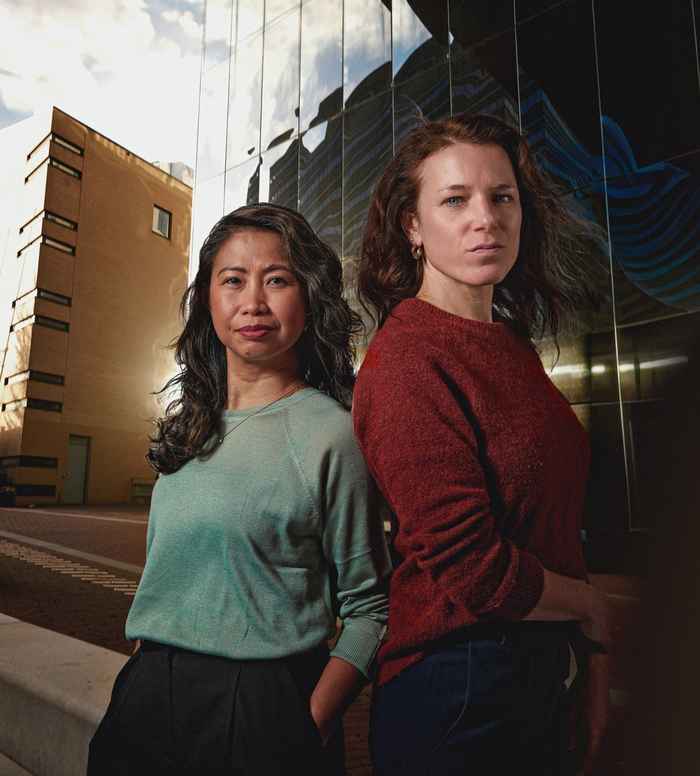Chei Billedo & Irene van Driel

Tell us about your work
Our Media Representation Initiative aims to improve representation in media, technology and science. We work towards an inclusive media and technology landscape for Dutch youth by combining research, teaching, and collaborating with youth, media producers, designers and technology creators.
Entertainment media and technology, such as Netflix, TikTok, digital games and virtual worlds play a large role in the life of youth. Young people learn about the self, others and the world around them through the role models they see in media. Seeing yourself reflected in media portrayals and experiencing life through the lens of role models who are different from you is important. But not all youth are visible on screen, and misrepresentations persist.
Often, we talk about youth, but we rarely include them in conversations. This is true for how we do research and how the media industry creates content. Do we really know what young people want and need? And do we have ALL young people in mind when we study and design technology? For example, what type of role models would young people like to see? How do they use technology to learn about the self and others? What technologies do they experience as having positive representations?
We offer an elective Representation in the Media, where we let students redesign stereotyped media products and pitch their ideas to media makers. Ultimately, we hope to create student and media maker teams to develop new media products.
We also work on various research projects that investigate the state of representation in the media industry and in media science. These topics go hand in hand. For example, we study the needs of the LGBTQ+ community for representation, and for that we need to understand how to ask about gender and sexuality among young people. Most studies still assess gender as a binary construct. As for ethnicity, predetermined categories exist, but do youth feel represented by these boxes? We then translate these findings back into best practices for industry and researchers.
In other studies, we are experimenting with how offering diverse social media role models and virtual influencers could help promote inspiring, different storylines among youth. The next step is to establish, together with youth, best practices for co-creating media technology with researchers and tech creators.
What is your motivation?
One of our major motivators for this project is our shared passion for social equality and the well-being of young people, including our students. And it surely helps that we have become good friends in the process. Although we share the same goal, we also come from different backgrounds. This allows us to be aware of various viewpoints, learn from each other, and incorporate these different angles into the work we do. These types of collaborations are known to lead to more innovative solutions. That is exactly why we advocate for a more inclusive media, technology and science landscape.
Your vision
We are using our expertise to ensure that future media and technology will support ALL young people in today's digital, hyperdiverse, fast-changing society.
We are not the first to bring up these needs of young people. In fact, there are many different organizations and researchers working toward similar goals. We strongly believe that progress is only possible when you combine forces, come together and empower existing initiatives.
Supporting Factors
Supporting factors include finding like-minded people with the same goal within and outside the university. Students want to be engaged, and their involvement in and support of the projects that we organize is essential and empowering. They, too, are important young voices, who ask for more diverse scientific materials. As students may be our future tech creators, their experience applying science to the real world is essential for their careers. And for us, we have had great collaboration opportunities due to former students now working for companies whose goals closely align with ours.
What we still need is structural support from the university to pursue impact work. We need it to be regarded with the same value as teaching and research. A significant portion of this work is currently undertaken on a voluntary basis, and crucial external presentation expenses, such as maintaining our website and covering travel and hosting costs for partnerships, are personally funded.